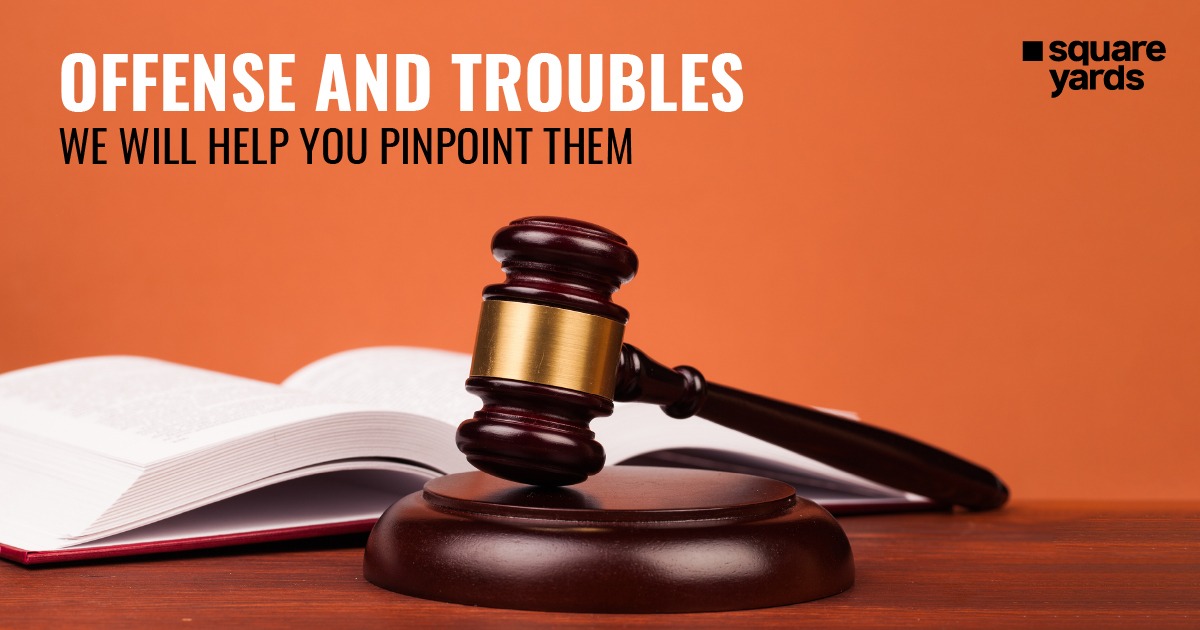When dealing with property documentation, it is crucial to safeguard yourself from potential offences that could lead to legal complications or disputes. Whether you are buying, selling, or leasing property, understanding the necessary precautions and best practices is essential. Today we will provide you with a comprehensive guide on how to protect yourself from property documentation offences. By following these friendly and helpful tips, you can navigate the process with confidence and ensure a smooth and legally compliant transaction.
Seek Professional Guidance
One of the most effective ways to safeguard yourself from property documentation offences is by seeking professional guidance. Engage the services of a qualified real estate lawyer or a reputable property consultant who specializes in property transactions. They possess the knowledge and expertise to navigate complex legal processes and ensure compliance with applicable laws and regulations.
A professional will review all the necessary documents, explain their implications, and provide advice to protect your interests. They will help identify any potential offences, rectify errors, and guide you through the documentation process.
Verify Property Ownership
Verifying property ownership is crucial to protect yourself from fraudulent transactions or disputes. Take the following steps to ensure the legitimacy of property ownership:
a) Review Title Documents: Carefully examine the property's title documents, including Sale Deed, Title Deed, or Conveyance Deed. Ensure they are genuine, accurate, and free from any encumbrances or legal issues.
b) Conduct a Title Search: Engage the services of a professional to conduct a thorough title search. This search will reveal any existing claims, liens, or disputes related to the property.
c) Cross-Check Government Records: Verify property details with relevant government authorities such as the land registry office or municipal corporation to confirm ownership and ensure there are no discrepancies.
Scrutinize Legal Documents
Scrutinizing legal documents is essential too to protect yourself from property documentation offences. Pay attention to the following aspects:
a) Sale Agreement: Carefully review the terms and conditions mentioned in the Sale Agreement, including the purchase price, payment terms, possession date, and any additional clauses or contingencies. Ensure that all parties involved have signed the agreement.
b) Encumbrance Certificate: Obtain an Encumbrance Certificate from the concerned authority to ensure there are no pending mortgages, liens, or legal claims against the property.
c) Property Tax Receipts: Request copies of property tax receipts from the seller to verify that all taxes are paid up-to-date. Unpaid taxes can create complications for the new owner.
d) Building Approvals and Permissions: Verify that the property has obtained all necessary approvals and permissions from local authorities, such as building permits, occupancy certificates, and clearances for construction.
Conduct Due Diligence
Conducting due diligence comes next. Take the following steps:
a) Physical Site Inspection: Visit the property in person to ensure it matches the description mentioned in the documents. Verify its condition, amenities, and any additional structures or encroachments.
b) Land Survey: Engage a licensed surveyor to conduct a land survey, ensuring that the property boundaries are accurately defined and there are no disputes with neighboring properties.
c) Financial Verification: Scrutinize the financial aspects related to the property, such as outstanding loans or pending dues. Ensure that the seller has cleared all financial obligations related to the property.
Exercise Caution with Payments
When making payments related to property transactions, it is important to exercise caution to protect yourself from financial frauds. Follow these guidelines:
a) Use Secure Payment Methods: Preferably, make payments through official banking channels such as cheques or bank transfers. Avoid making cash payments, as they lack traceability and can be risky.
b) Keep Payment Records: Maintain detailed records of all payment transactions, including receipts, bank statements, or any other evidence of payment. This documentation will serve as proof in case of any disputes.
c) Escrow Services: Consider utilizing the services of an escrow agent or a trusted third-party to hold and disburse funds during the transaction. This ensures that the payment is made only after all necessary documentation and legal requirements are met.
Stay Informed and Updated
Keeping yourself informed and updated about property laws, regulations, and documentation requirements is crucial. Stay abreast of any changes in legislation, property-related policies, and local regulations.
Read reliable sources, consult legal professionals, attend seminars, or participate in workshops related to property transactions. This knowledge will help you understand your rights, responsibilities, and potential risks associated with property documentation.
Conclusion
Safeguarding yourself from property documentation offences is of utmost importance to protect your interests and avoid legal complications. By seeking professional guidance, verifying property ownership, scrutinizing legal documents, conducting due diligence, exercising caution with payments, and staying informed, you can navigate the property transaction process with confidence. Remember, prevention is key, and taking the necessary precautions will help ensure a smooth and legally compliant property transaction experience.
FAQs
Q: Why is it important to seek professional guidance?
Professional guidance from a real estate lawyer or property consultant is crucial because they possess the expertise to navigate complex legal processes, review documents for compliance, and provide advice to protect your interests. They can identify potential offences, rectify errors, and guide you through the documentation process.
Q: How can I verify property ownership?
You can verify property ownership by reviewing the property's title documents, conducting a title search, and cross-checking government records such as land registry or municipal records. These steps help ensure that the property ownership is legitimate and free from disputes or encumbrances.
Q: What should I scrutinize in legal documents?
When scrutinizing legal documents, pay attention to aspects such as the sale agreement, encumbrance certificate, property tax receipts, and building approvals. Review the terms and conditions, verify the absence of encumbrances, ensure tax compliance, and confirm the property's legal status with relevant authorities.




